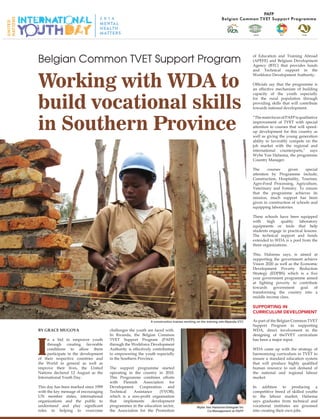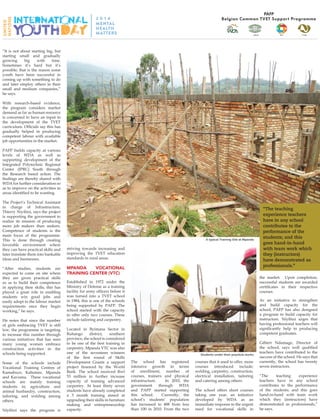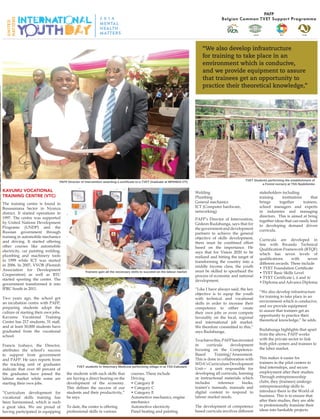The document discusses the Belgian Common TVET Support Program which works with the Rwandan Workforce Development Authority (WDA) to provide vocational skills training to youth in southern Rwanda. The program supports several vocational training centers by constructing facilities, equipping laboratories, developing curricula, and building instructor capacity. It focuses on high-demand skills like construction, agriculture, and hospitality. Officials say the program helps develop skills for national development and economic growth by making graduates more employable or able to start their own businesses. At Mpanda Vocational Training Center, student enrollment and courses offered have greatly increased with support from the program.


